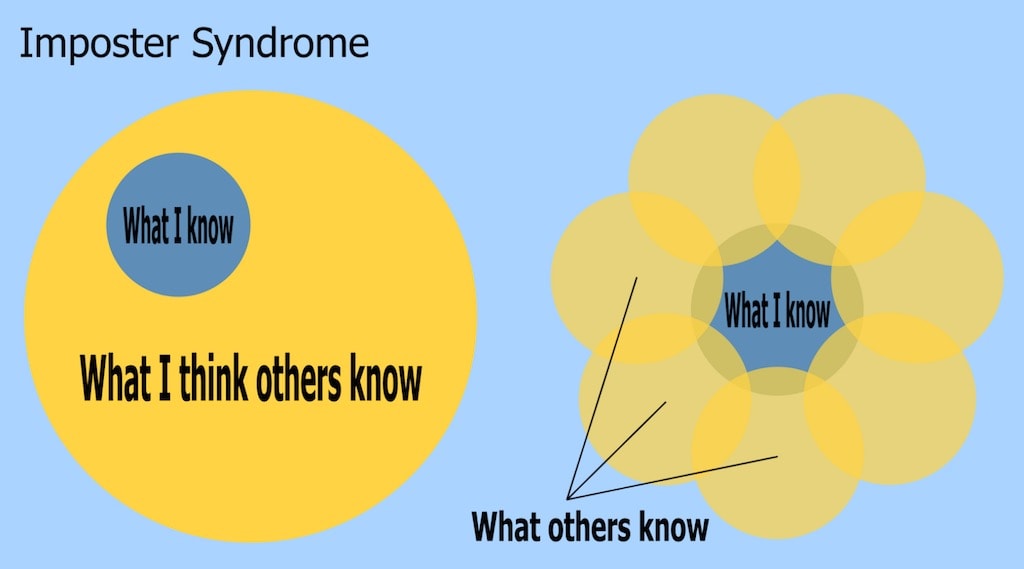I first learned about impostor syndrome almost eight years ago. My therapist at the time introduced me to the concept–something I said made her believe it might have been a thing for me. I even wrote a tiny post about my new finding. In hindsight, I wish I had spent more time exploring the matter. Eight years later, impostor syndrome is…still a thing.
 Authored by Valerie Young, The Secret Thoughts of Successful Women: Why Capable People Suffer from the Impostor Syndrome and How to Thrive in Spite of It, is a manifesto on the topic. I recently decided to read this book after a convergence of events in my personal and professional life. Through introspection, it became clear this phenomenon was keeping me from reaching my greatest and highest usefulness.
Authored by Valerie Young, The Secret Thoughts of Successful Women: Why Capable People Suffer from the Impostor Syndrome and How to Thrive in Spite of It, is a manifesto on the topic. I recently decided to read this book after a convergence of events in my personal and professional life. Through introspection, it became clear this phenomenon was keeping me from reaching my greatest and highest usefulness.
What Is Impostor Syndrome, Again?
Psychologists Pauline Rose Clance and Suzanne Imes first coined the term in the 1970s. Impostor syndrome–the persistent inability to believe that one’s success is deserved or has been legitimately achieved as a result of one’s own efforts or skills–was originally believed to primarily impact women. However, we now understand that it affects both men and women. Moreover, it disproportionately impacts minority groups: women, underrepresented minorities, and “firsts” of any kind. No wonder it’s still a thing for me–I have the good fortune of checking all of those boxes. Winning!
In a quest to deepen my understanding of Impostor Syndrome, I found a description that I particularly liked via an HBR article authored by Gill Corkindale:
Imposter syndrome can be defined as a collection of feelings of inadequacy that persist despite evident success. ‘Imposters’ suffer from chronic self-doubt and a sense of intellectual fraudulence that override any feelings of success or external proof of their competence. They seem unable to internalize their accomplishments, however successful they are in their field. High achieving, highly successful people often suffer, so imposter syndrome doesn’t equate with low self-esteem or a lack of self-confidence. In fact, some researchers have linked it with perfectionism, especially in women and among academics.
Whew. Take that in for a second; that was a lot. You might be able to relate to some or all of the above; it certainly resonated with me. So much so, that I dove head first into the book yearning for comprehension of this madness and ways to combat.
Is This Me?
So, maybe you have heard of this before and you’re unmoved. Or, maybe you read the above and think this may be relevant but you’re still not sure. There is a short quiz in the book to help assess if impostor syndrome is a thing for you:
- Do you chalk your success up to luck, timing, or computer error?
- Do you believe “If I can do it, any body can?”
- Do you agonize over the smallest flaws in your work?
- Are you crushed by even constructive criticism, seeing it as evidence of your ineptness?
- When you do succeed, do you secretly feel like you fooled them again?
- Do you worry that it’s a matter of time before you’re “found out”?
If you answered yes to one or all of the above questions, then–like me–this may be close to home.
Good Company
Newsflash: you’re in good company! There is no shortage of celebrities and business leaders who experience impostor thoughts. In fact, research shows that impostor syndrome is pervasive amongst high achievers. As an example, the following celebrities are part of the club:
- Maya Angelou: “I have written 11 books, but each time I think, ‘Uh oh, they’re going to find out now. I’ve run a game on everybody, and they’re going to find me out.’”
- Tom Hanks: “No matter what we’ve done, there comes a point where you think, ‘How did I get here? When are they going to discover that I am, in fact, a fraud and take everything away from me?'”
- Sonia Sotomayor: “I have spent my years since Princeton, while at law school and in my various professional jobs, not feeling completely a part of the worlds I inhabit. I am always looking over my shoulder wondering if I measure up.”
- Tina Fey: “Ah, the impostor syndrome!? The beauty of the impostor syndrome is you vacillate between extreme egomania, and a complete feeling of: ‘I’m a fraud! Oh god, they’re on to me! I’m a fraud!’ So you just try to ride the egomania when it comes and enjoy it, and then slide through the idea of fraud. Seriously, I’ve just realized that almost everyone is a fraud, so I try not to feel too bad about it.”
Good News!
The good news is that we have the power to combat this phenomenon. We can actually unlearn the thinking that leads to impostor thoughts. Accordingly, via a series of posts, I will share some of my reflections and take-aways on managing through impostor syndrome. By sharing openly, I hope to help others see it for what it is and develop strategies to tackle. So come along for the ride and let’s explore together!











Leave a Reply